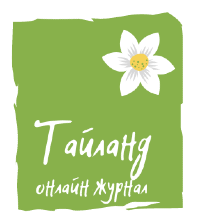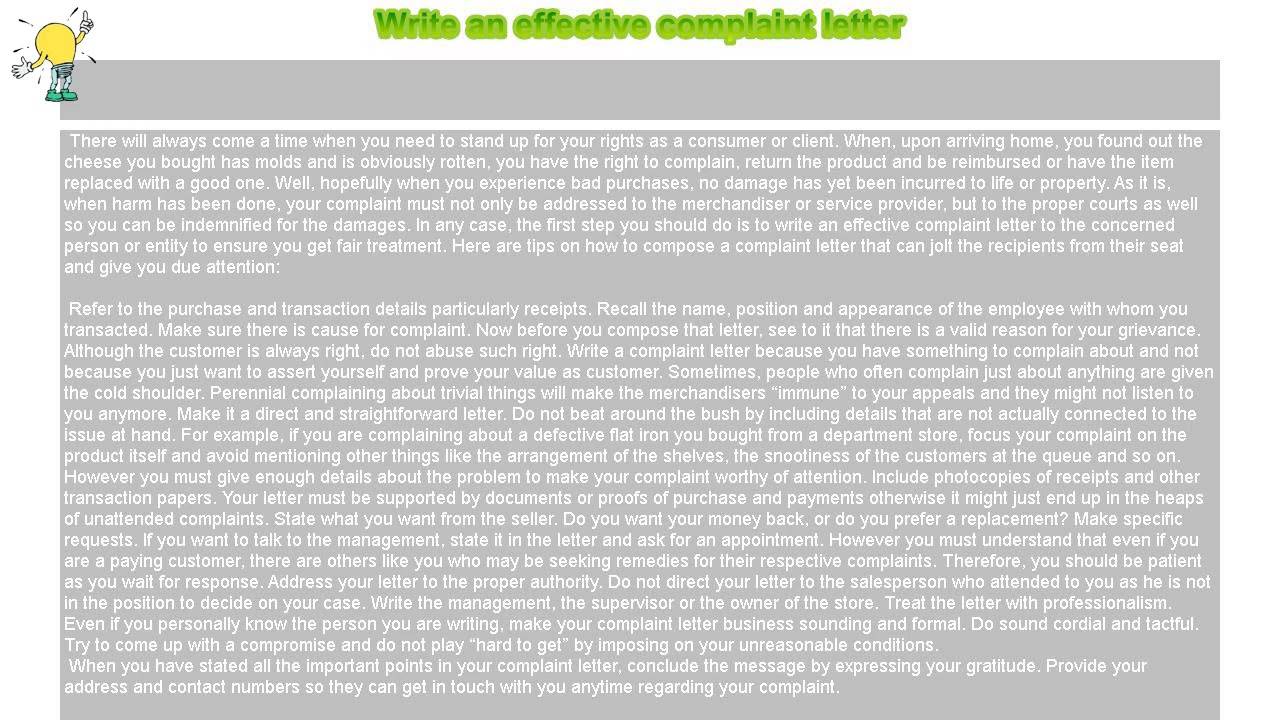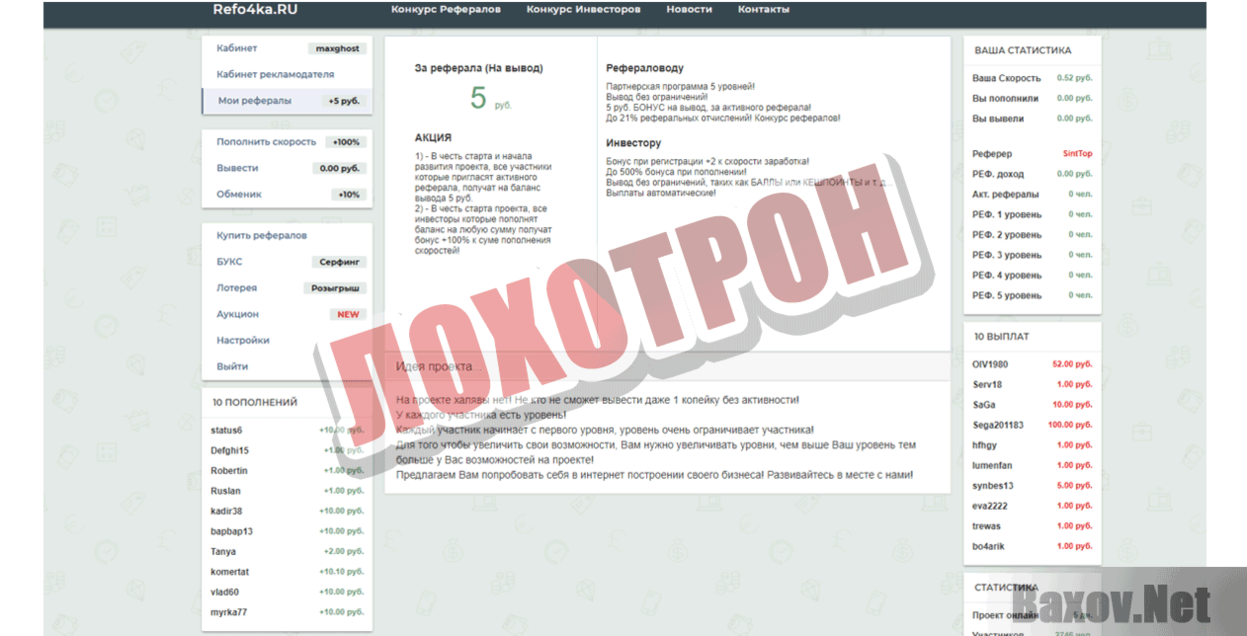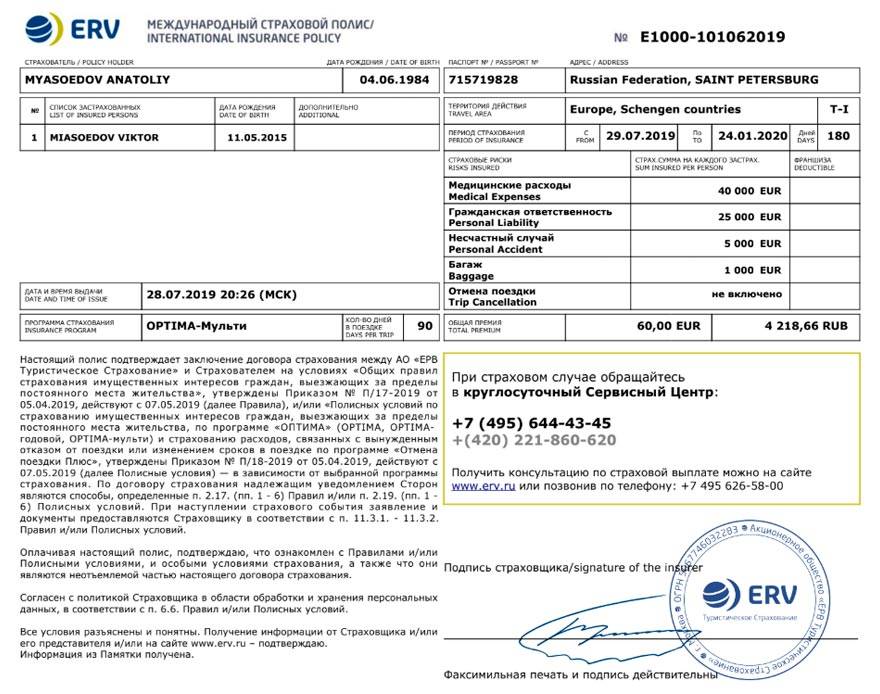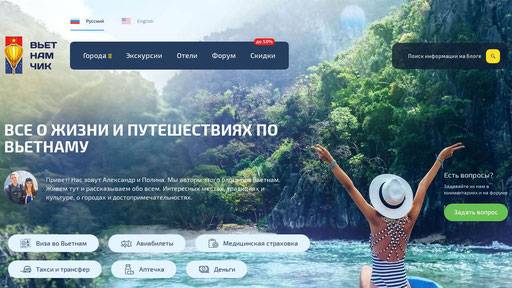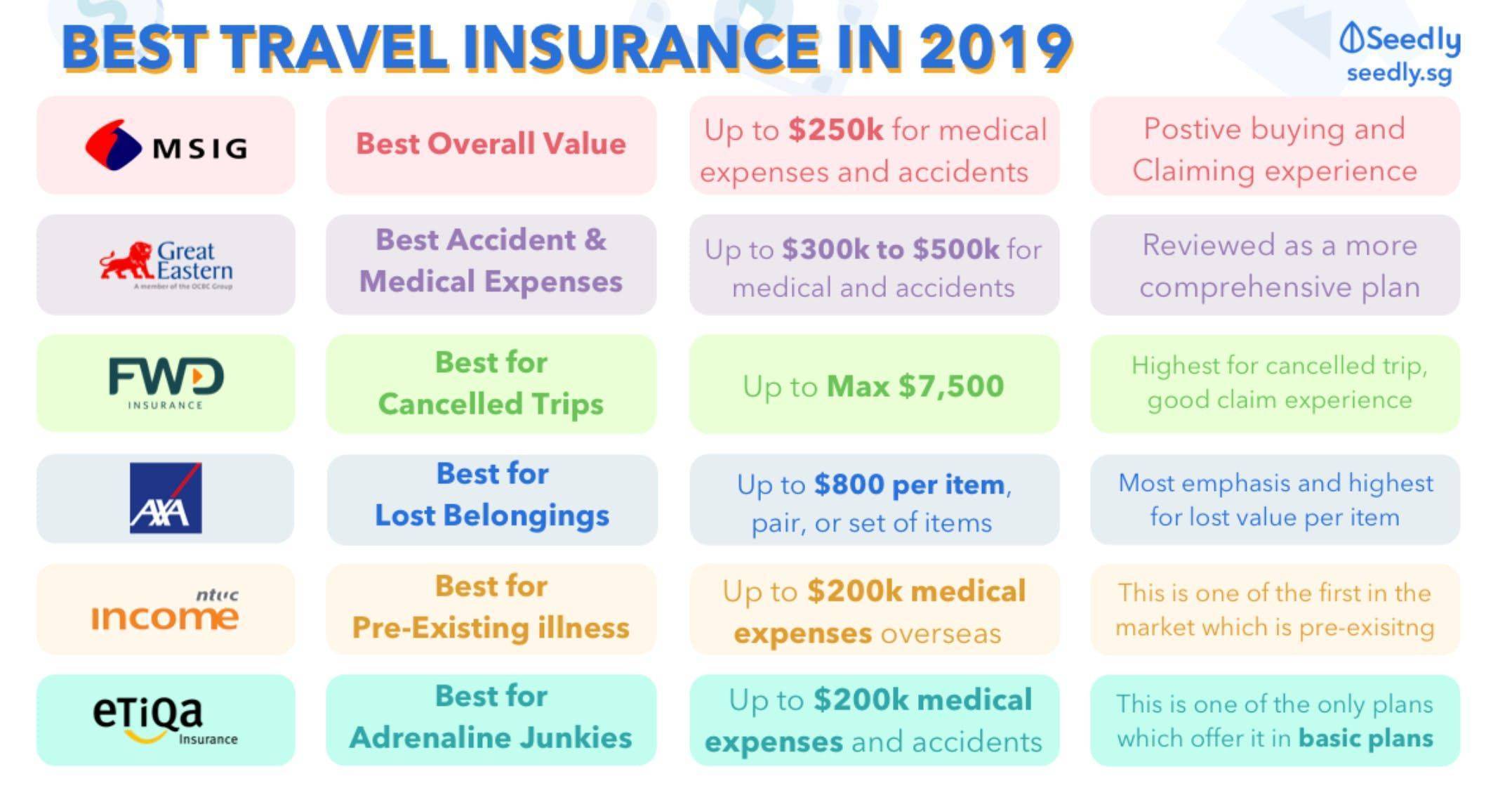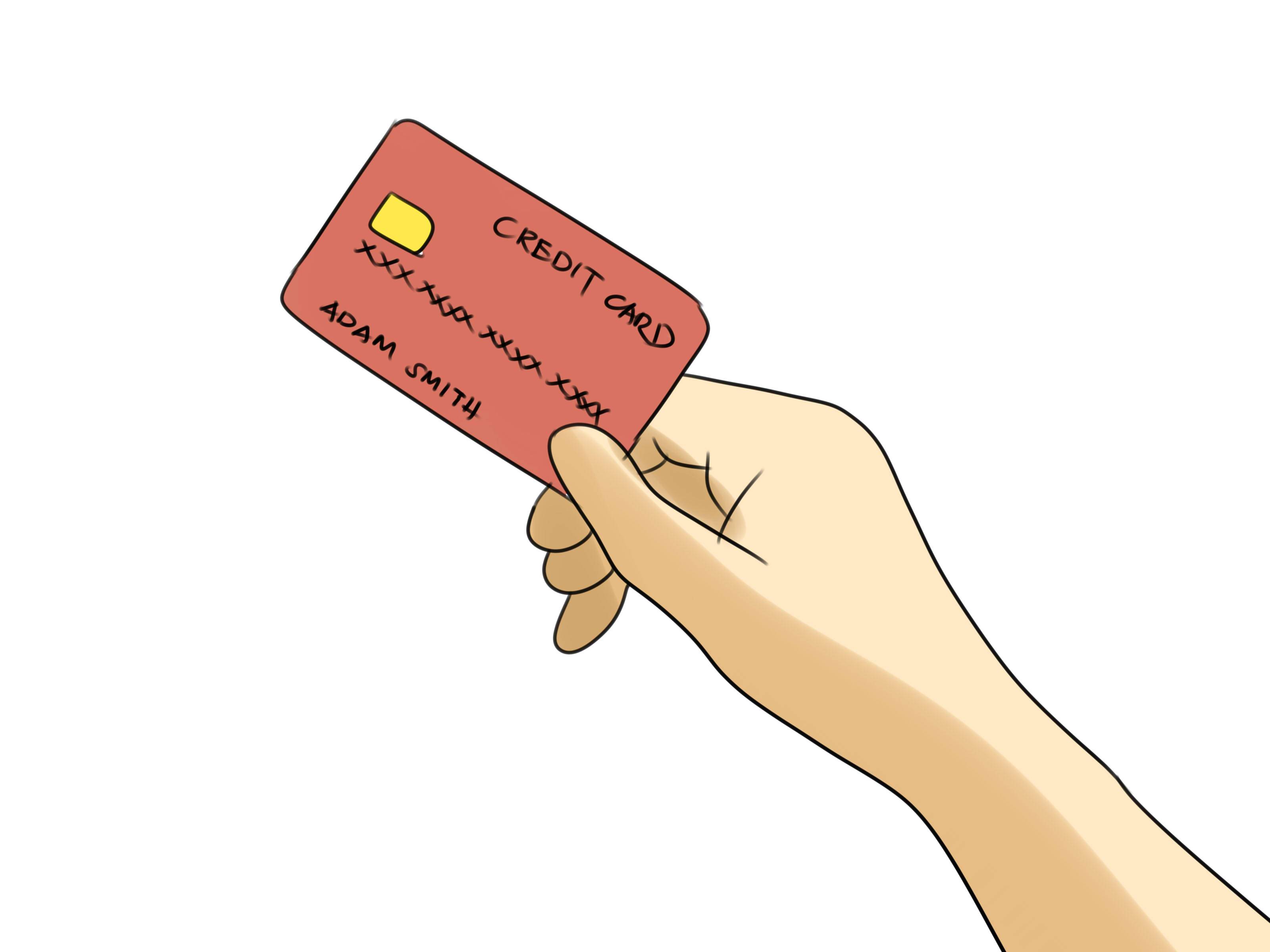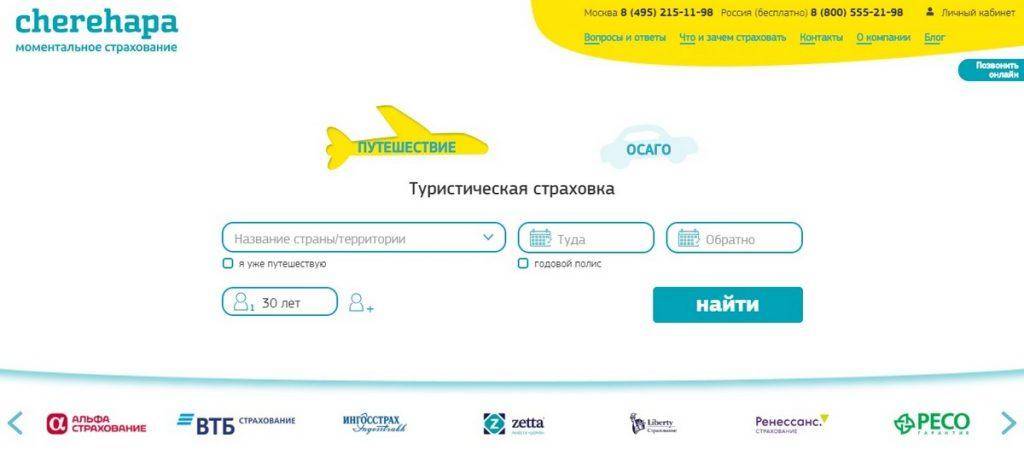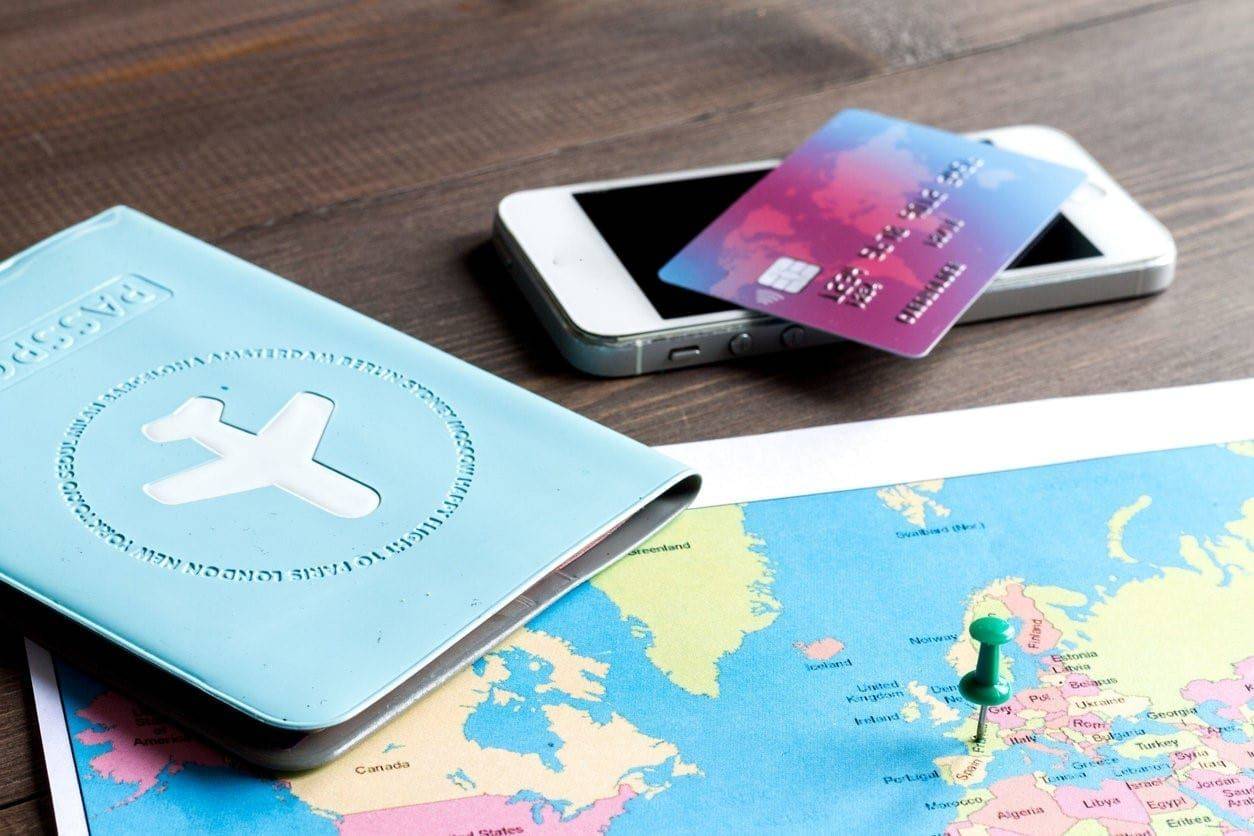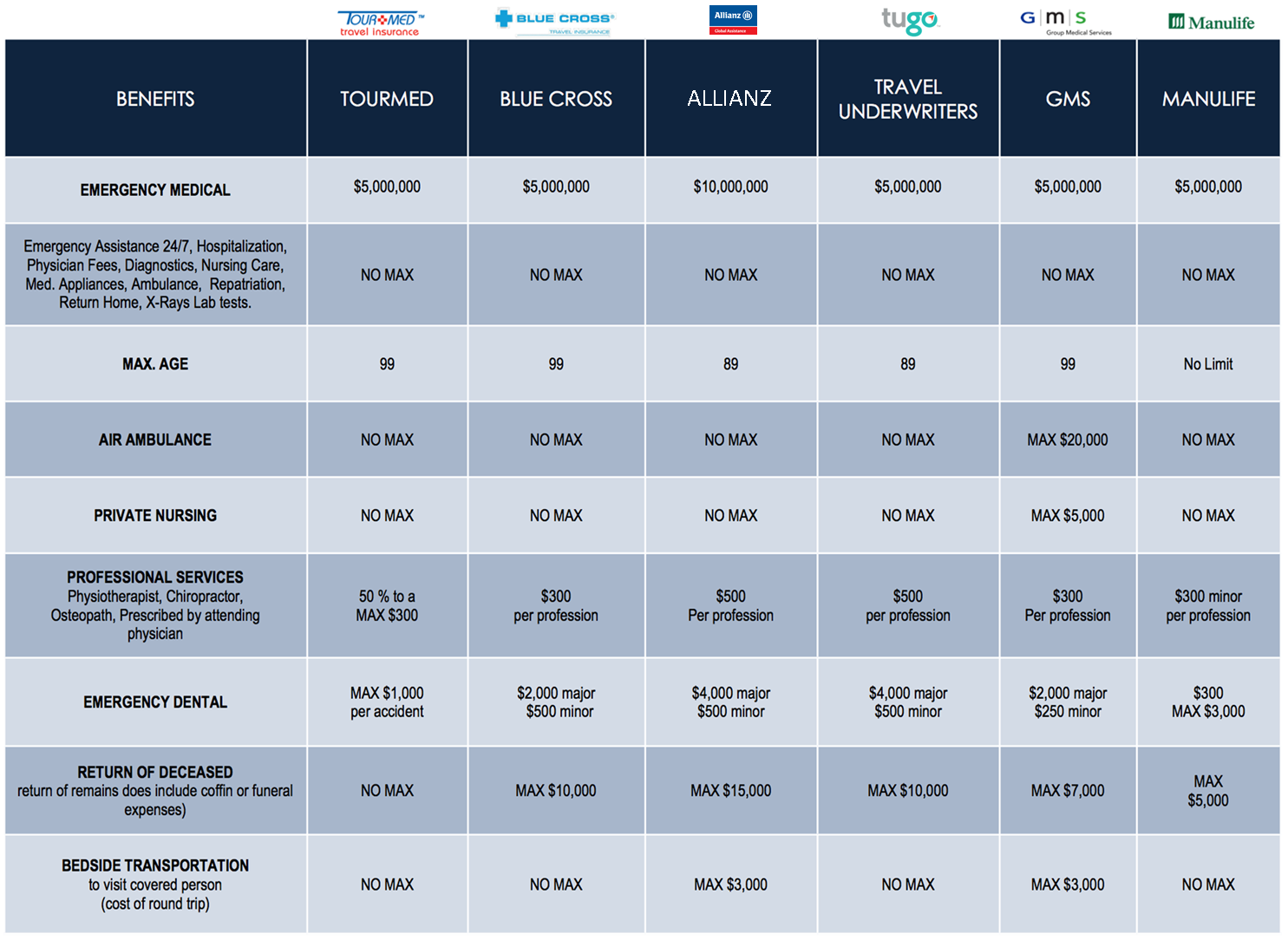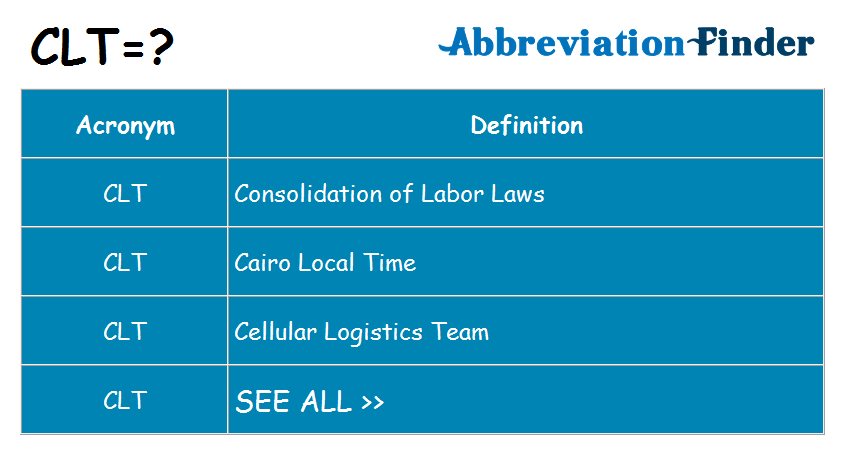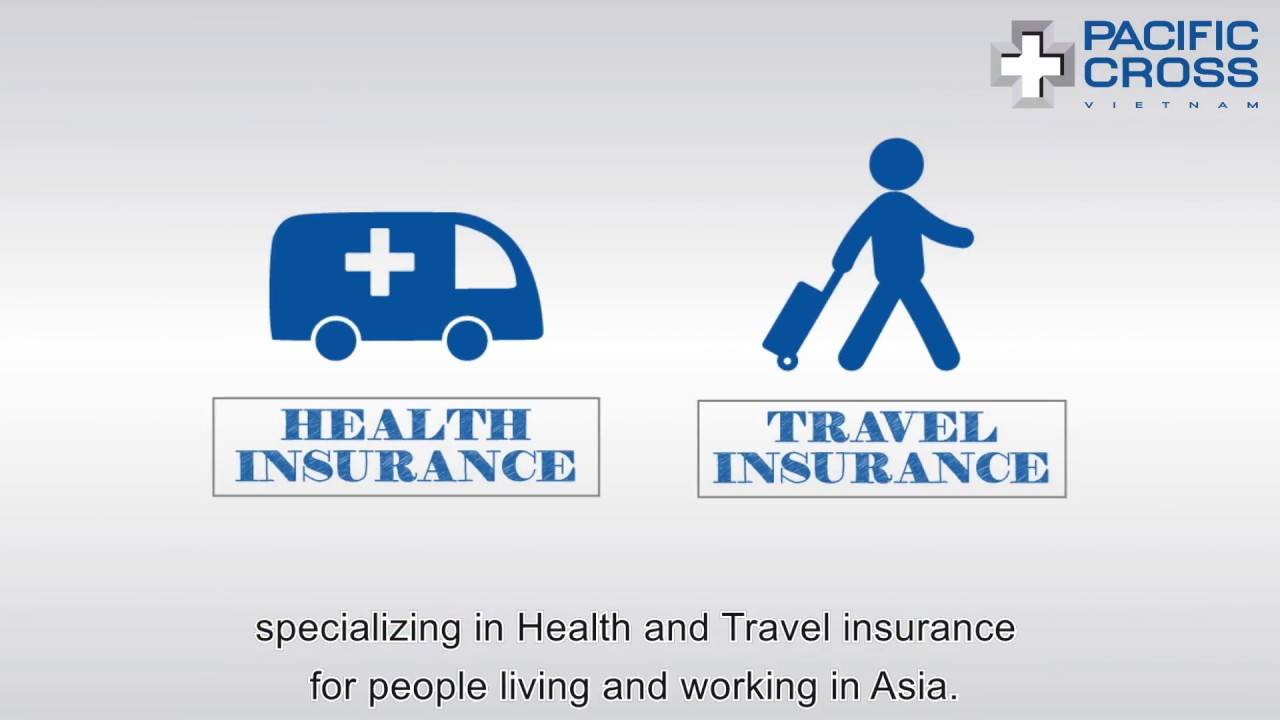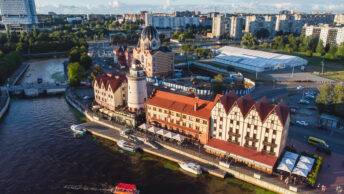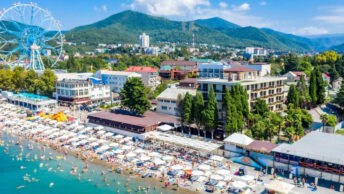Hue
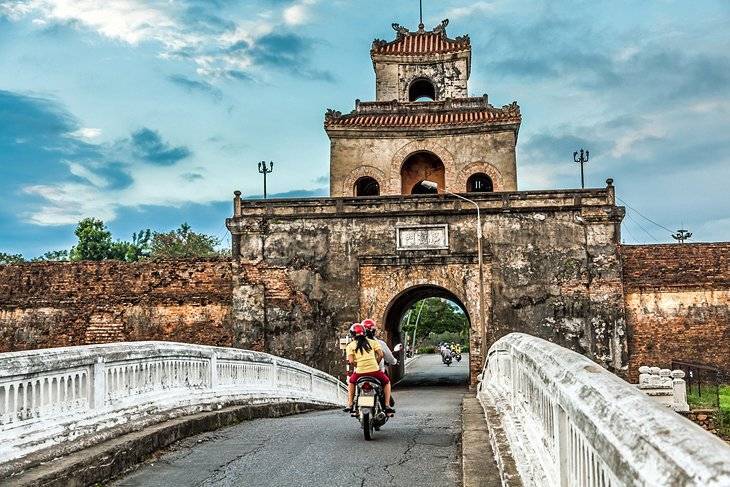 Hue
Hue
One of Vietnam’s most historic towns, Hue is packed to the brim with relics from the reign of the 19th-century Nguyen emperors.
Sitting along the banks of the gorgeous Perfume River, the Imperial Enclosure is a huge site set within walls that sprawl for 2.5 kilometers.
While touring the grounds check out the gorgeous Ngo Mon Gate, the Thai Hoa Palace with its finely lacquered interior detailing, the Dien Tho Residence where the Queen Mothers would live, and the Halls of Mandarins with its preserved ceiling murals.
A dazzling number of historic sites lie outside the Imperial Enclosure walls as well.
One of the nicest ways of visiting a collection of outlying sites is by taking a riverboat cruise on the Perfume River. A day cruise can take you to visit several royal tombs along with some pagodas.
If you’re short on time, the best tomb to visit is the Tomb of Tu Doc and the most important pagoda in the area is the Thien Mu Pagoda, with its tower that soars for 21 meters high.
Accommodation: Where to Stay in Hue
Medical insurance in Vietnam: What are the costs?
Once you know what type of insurance you might be interested in buying, there is still a range of different cost options available to decide upon. Pacific Prime, in particular, provides excellent international private medical insurance options. Our teams also consider the average cost of international health insurance around the world, including in Vietnam. The average cost in Vietnam is USD 7,775, while the figures for plan types are:
Individuals | Families |
4,038 | 11,512 |
* Prices are in USD, available from our annual report: Cost of International Health Insurance 2018
Using our online comparison tool, individual insurance for a 1-year policy covering inpatient and outpatient care for a 35 year old male may cost anywhere from USD 69 per month, to as high as USD 1,521 for a fully comprehensive plan with the highest benefits available. Again, being clear about what your Vietnam health insurance needs are will ensure that you pay just the right amount for the coverage you require.
What Does Travel Insurance Cover?

Below is a quick rundown of what can be covered by good travel insurance.
Please note: You’ll need to check each individual policy to determine what is specifically covered.
Emergency Medical Expenses
Now you may be thinking, “Hey, I already have health insurance. Doesn’t my policy already cover me when I am overseas?”
If you are traveling abroad, typically that is not the case and your policy may offer only limited coverage – if any at all.
Even if your home policy does provide coverage, you may still be charged outrageous fees on deductibles before your insurance company pays for your claim.
So in the event you need to seek medical attention, you may be on your own in covering the hospital bill without dedicated travel insurance.
Emergency Transportation
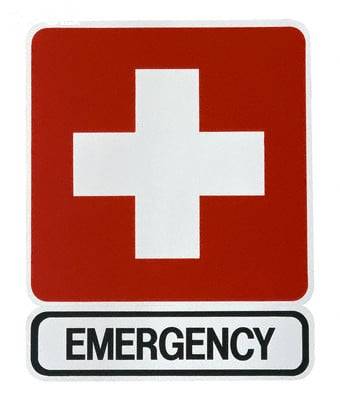
In the event that a medical evacuation becomes necessary, a good policy covers the cost of transporting you the nearest suitable hospital for treatment.
Some plans even cover transportation costs to send children home and a visitor to watch over you should you require hospitalization.
Coverage on emergency evacuation due to a political crisis or natural disaster is also available for purchase on some insurance plans.
Trip Delays, Cancellation and Interruption
Oftentimes, unforeseen circumstances may require you to delay or cancel your trip.
Some examples of how your trip could get delayed or cancelled could be:
- Getting your passport stolen;
- Inclement weather or natural disasters hitting your destination;
- You lose your job all of the sudden;
- You’re called in for military obligations;
- You or someone at home gets sick or injured;
- Your traveling documents or baggage is stolen or misplaced;
- Civil unrest breaks out in your destination and it is deemed unsafe to travel there;
In the event you need to cancel or delay your trip, travel insurance can help with reimbursement for money already paid for bookings (i.e. flight changes, which can be costly!), fees charged for rearranging your travel plans or canceling them entirely.
Help with Flight Changes
Flight delays can be a pain. Luckily, travel insurance makes them more bearable by covering unforeseen costs during a delay.
If your flight is delayed or canceled due to severe weather, mechanical breakdowns, or even a labor strike, travel insurance can cover hotel stays, meals, and local transportation costs.
In the event of a catastrophic flight disaster, insurance providers pay out benefits for accidental death and dismemberment. Obviously you hope that never happens!
Lost or Stolen Baggage
Waiting at baggage claim is always a pain. If baggage is delayed, many plans reimburse you for essential items you need while waiting for your bags to be returned.
When purchasing a policy, definitely read carefully the “essential items” part of your coverage. They may not reimburse you for a pair of Oakley sunglasses you need to visit the beach.
If baggage is stolen, your provider can both provide and assist you in getting compensation from responsible parties as long as you report the theft in a timely manner.
Climate and weather in Vietnam
Located in the tropical zone, Vietnam has plenty of sunshine, high rainfall, humidity and monsoons.
The average temperature is between 22C to 27C, with two distinguished seasons.
Seasons in the south
The cold and dry season lasts from November to April, and the hot and wet season from May to October.
sFlooding is common in the Mekong River Delta between August and November, when southeast Asia receives monsoon rains.
Seasons in the north
The north has four distinct seasons: spring, summer, autumn and winter.
Flooding is common from June to December in and around Hanoi, in Northern Vietnam.
The best time to visit the country is from October to April. Pack light and easy-to-dry clothing, as the weather can go from buckets to sunshine within minutes.
By Allyson Jennings,
World Nomads Contributor – Wed, 11 Apr 2018
You can buy at home or while traveling, and claim online from anywhere in the world. With 150+ adventure activities covered and 24/7 emergency assistance.
What your fellow travellers say about TuGo
Don A
I couldn’t have ever imaged the total and excellent service you provided to my wife in a situation we never anticipated… Anyone who has experienced a crisis like this can appreciate the comfort and support this kind of service gives.
Debra C
We’ve had TuGo insurance for several years now. I’ve compared prices and TuGo remains the best. Now that we’ve had to use the insurance for an emergency, we’re even more convinced—thank you.
Cathy R
We had exceptional claims handling. We were in contact with the representatives from TuGo every step of our incident. From the first call the doctor made until we were safely back home. Incredible service and assistance. Claim was paid out very quickly. 110% satisfied.
Cheryle G
I’ve had nightmares with other insurance providers. Your company is totally different. The tone of the initial letter I received was so reassuring. Kudos to you for making me feel like I counted. Letters like this one are very encouraging to me as I have never had to deal with a medical cancellation process or claim before.
Gerry G
We’re very grateful for your kind support. Every person we ever spoke to at TuGo was extremely helpful. You’ve been great, supportive, helpful, reassuring, responsive. Keep up your great work!
Laura T
You’re the best. I have to say, your service is and was impeccable. At a very stressful time we were so lucky to have you in our corner. We cannot thank or brag about you enough. Thanks.
Warren B
We’ve used TuGo for many years and have found their service to be excellent! Last year was a bad travel year for us, as 2 trips were cancelled because of walking problems my wife had. Then, on our last planned trip, I was hospitalized prior to travel. All 3 trip cancellations were handled quickly and timely. A very bad travel year for us but a very good response from TuGo!
Juanita S
I’ve told everyone I can how wonderful the staff at TuGo are. So helpful, courteous and informative. Wonderful to deal with. Will continue to go through TuGo for all my travel insurance and recommend you to everyone I speak with. Thank you.
Lil Z
Everything was done totally professionally from the time I made the call to receiving my payment. Completely happy with the way everything was handled. We have total confidence in the company to look after our best interests!
Alan M
No need to improve. You have the most professional people in your office. Easy to understand and compassionate. Many thanks for taking all the pressure of dealing with a foreign hospital.
Cornelius H
My experience with TuGo has been nothing less than exceptional… It was our good fortune that we chose TuGo to insure our trip for what proved to be an unforeseeable illness… Trust is what policyholders should expect from their insurance provider and TuGo provides that comfort.
Dayelle
I just want to thank you for your exceptional help both to Brandon, my son, as well as myself while he was in the hospital in Peru and I was on a holiday out of country in the United States. Not only were you able to communicate with the hospital personnel but you also kept me informed about his progress, diagnosis, prognosis and estimated rate of recovery. You were my life line since I cannot speak Spanish and Brandon was not really well enough to communicate with me in a meaningful way.
Michelle
Your staff was exceptional and your service was easy and precise! Just keep doing what you’re doing because this is the BEST experience I’ve ever had with insurance.
Bernice
I just wanted to say many thanks to all. Everyone I have spoken to has been most helpful and prompt in letting me know where my claim is at. I have been a travel agent for over 25 years and have had to deal with “insurance companies” and have had to fight “tooth and nail” on behalf of my clients to get a timely settlement. Needless to say I am very pleased with your professionalism, kudos to all.
Mark
It was easy to work with you. We have had travel insurance for many years, but never luckily needed it up until now. So, for our first experiment, it was very positive! Thank you!
Hanoi
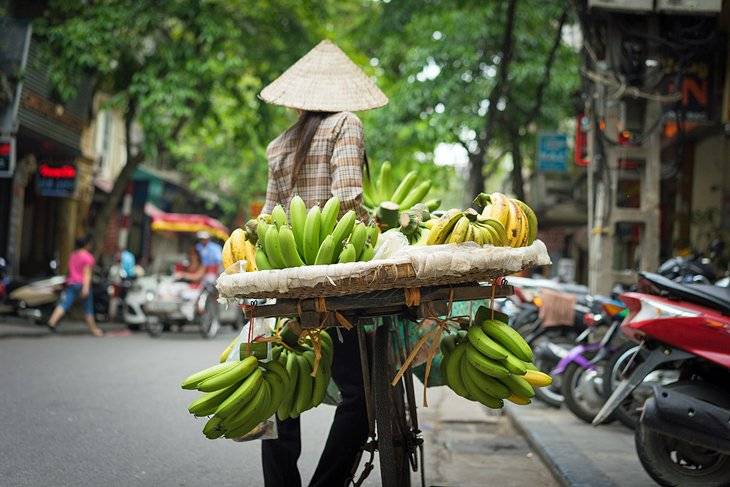 Hanoi
Hanoi
Vietnam’s capital is the frenetic heartbeat of the nation and a place that befuddles travelers as much as it charms them.
The motorbike frenzy, pollution, and constant clamor of street vendors can get too much for some travelers, but if you want to dive into Vietnamese city life, Hanoi is the place to do it.
The old town quarter has plenty of dilapidated charm on offer, while history fans should make a beeline here simply to see the bundle of excellent museums.
The Vietnam Museum of Ethnology and Vietnam Fine Art Museum are both brilliant introductions to the diverse artistry of the country, while the Ho Chi Minh Mausoleum is an important tribute to the founder of modern Vietnam.
Accommodation: Where to Stay in Hanoi: Best Areas & Hotels
Read More: Top-Rated Tourist Attractions in Hanoi
Food, water and hygiene
One of the highlights for travelers in Vietnam is sampling the local food. Keep in mind that hygiene standards for street stalls and restaurants can vary.
If it looks like it might make you sick, it probably will.
Outbreaks of water-borne, food-borne, parasitic and other infectious diseases such as cholera, typhoid and hepatitis A occur from time to time in Vietnam. Avoid salads, ice cubes or icy drinks, anything directly washed with water, unpeeled fruit and vegies or uncooked foods. Practising good hygiene can also help guard against diarrhoea and other tummy bugs.
If you do suffer form a severe diarrhoea outbreak, visit a local hospital.
Hand, foot & mouth disease is common throughout Vietnam, with outbreaks occuring during the year. Take precautions to avoid contracting it with good personal hygiene, i.e. lots of hand washing.
Water can’t be consumed from the public water system in Vietnam. Aside from the risk of getting a tummy bug, it can be highly chlorinated. Stick to boiled or treated water.
Last-minute tips
- Budgeting doesn’t have to be a dirty word. It might not be the most fun part of your holiday, but it is the most important. There is nothing worse than the unexpected stress of recalculating your budget mid-holiday.
- Vietnam is a super cheap destination, and you’re likely to want to explore more than one city. Give yourself plenty of time and be flexible with how you get around.
- Hostels are a great way to meet like-minded travellers and meet friends to explore with.
- It’s super hot, so be sure to stay hydrated and be careful of the tap water.
- Research your ‘per day’ budget and include the things you want to do. Once you know the costs, you have a goal to save for and some flexibility to work with
- Take advantage of Travel Money Oz’s Best Price Guarantee. If you find a better price from a competitor, they will guarantee to beat it*.
- Most things are cheaper to book in advance (especially if you’re going near peak times), but some things can be more affordable to purchase in Vietnam. Check out reviews if you think something is too good to be true. Chances are it might be.
- Vietnam is a cash based society, but it is worth having a prepaid travel money card, like the Travel Money Oz Currency Pass, loaded with some funds so you aren’t walking around with heaps of cash.
- Don’t forget to factor in your pre-travel costs (e.g. travel insurance, immunisations and visas). These are particularly important for Vietnam.
- Don’t forget other cheeky costs like airport transfers, tours and tipping
- Sign up for Rate Alerts. We’ll let you know when the AUD is doing well against the VND so you can purchase and maximise your travel money.
- Worried about street food? Go to the stalls that have a long line up, chances are they are popular for a reason.
- Crossing the street is a sport, but locals will just drive around you. Seriously, you could walk across with your eyes closed and be safe because drivers are so accustomed to going around people.
Mosquito-borne disease
Malaria and Dengue Fever
The mosquito-borne illnesses malaria and dengue fever are prevalent in Vietnam, particularly in the south. There has been an increase in the number of cases reported, and deaths from dengue fever with more than 184,000 cases and 32 deaths reported in 2017; 60,000 more cases than 2016.
Mosquitoes carrying malaria and dengue fever love the wet climate, so be careful when trekking in mountainous places like Sapa. There are no vaccinations available for dengue fever and it’s advise to take anti-malarials prior to departure. Wear long trousers and socks, sleep under a mosquito ne, and use a strong insect repellent.
Keep in mind it’s advised not to take aspirin or ibuprofen until dengue fever has been ruled out.
Zika Virus
Zika virus continues to be an issue in Vietnam. Like dengue fever, there is no vaccination available so make sure you take precautions to avoid being bitten.
Japanese Encephalitis
This disease is prevalent throughout Vietnam, with the highest number of cases reported in northern Vietnam including north of Hanoi and border regions with China. Vaccination is available and bite prevention is recommended.
Halong Bay
Halong Bay
The karst seascape of Halong Bay is one of the best places to visit in the world for spellbinding sea views and is a UNESCO World Heritage Site.
Thousands of limestone islands sit within this bay in the Gulf of Tonkin, eroded into jagged pinnacles by wind and water action over millennia.
With the bay’s scenery best seen by boat, this is prime cruising territory. Opt for at least an overnight tour to see Halong Bay’s iconic views as a day trip doesn’t do it justice.
There are plenty of caves in the bay that can be entered including the Hang Sung Sot, with three mammoth caverns, and the Hang Dao Go, with superbly weird stalagmites and stalactites. For most people though, the highlight is simply cruising amid the karsts and soaking up the changing scenery of pinnacles as you pass by.
Accommodation: Where to Stay in Halong Bay
Travel Insurance to Enter Thailand
With Thailand very slowly reopening to visitors, one of the latest requirements for visitors is the mandatory COVID-19 insurance plan for foreigners that covers the traveler for a minimum of $10,000 (the Thai policies generally cover 350 thousand Thai baht). In addition to all the requirements, the traveler needs to obtain a Thailand Pass and a valid visa. This health insurance is another level of security to make sure that the traveler can cover all costs in case they are diagnosed with or die from COVID-19 during their stay in the kingdom.
Thai immigration officials are notoriously fastidious when it comes to paperwork, and will only accept policies from certain providers. Luckily, a consortium of insurance providers in Thailand offers COVID-19 insurance for foreigners planning to visit Thailand which will be accepted by immigration, and these policies can be purchased easily online. Although this could be seen as another opportunity to make some easy profits for the insurers, the policies are quite reasonably priced, depending on a few factors; let’s take a closer look.
Con Dao Islands
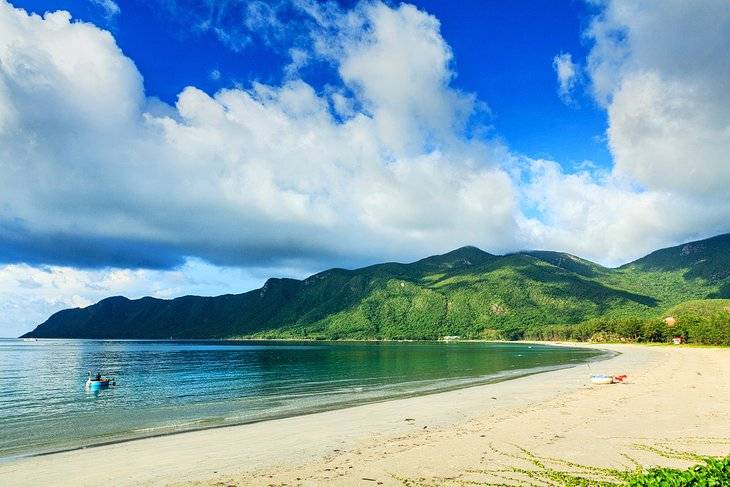 An Hai Beach on Con Son Island
An Hai Beach on Con Son Island
This remote island group lies around 160 kilometers offshore in the South China Sea and is renowned among divers as one of the best places to visit in the country, both for the variety of sea life and for the coral reefs.
Much of the Con Dao Islands, and the surrounding water, is a protected wilderness area, with the island shores home to nesting turtles, and dense forest still covering the island interiors.
The main island, and prime base for visitors with all the accommodation and things to do, is Con Son Island, which has sweeps of sand strung out across its coast that attract beachgoers looking for a relaxed sun-soaked getaway, as well as divers.
Even if you’re here mostly for the beach, make sure to explore the historic sites of Con Son Town (the island’s only settlement) including Phu Hai Prison, Bao Tang Con Dao Museum, and the prison known as the Tiger Cages, which document the dark history of this isolated island group.
Con Son’s remote position led to the island being used to incarcerate political prisoners during the era Vietnam was occupied by French colonial forces, and later by both the South Vietnamese government and the occupying American forces.
Preserved sites including Phu Hai Prison and the prison cages used by the US forces, known as the Tiger Cages, along with Con Son Town’s Bao Tang Con Dao Museum, do an excellent job of documenting this history for visitors.
Access to Con Son Island is either by flight from Ho Chi Minh City or by ferry from the coastal city of Vung Tau.
Why You Need Travel Insurance
To begin with, traveling is expensive, and you’ve likely spent thousands of dollars planning your trip. However, if you encounter unforeseen events before you’re set to leave or even while abroad that require you to cancel or interrupt your trip, travel insurance provides you with a means of recovering at risk pre-paid and non-refundable trip costs.
In addition to that, it’s smart to have a backup plan in place in case you encounter a medical emergency while you’re abroad. Did you know that most domestic health insurance companies (and even Medicare) will not cover medical expenses incurred while in a foreign country? So, if you need emergency medical attention while you’re away, you’d be required to potentially spend thousands of dollars out of your own pocket. But with travel insurance, you can rest assured that if something happens while you’re away from home, you’ll have a way to cover these unexpected costs.
When you’re making
travel plans, the last thing you’re focusing on is the possibility of having to
cancel them or playing out hundreds of what-if scenarios that could go wrong.
But, it’s always a good idea to prepare, and the peace of mind that travel
insurance brings will help you enjoy your trip to the fullest.
Vietnamese Budget Examples
Here are some examples of what the bones of your travel budget would look like. Please note all of these examples are based off seven nights accommodation and are quoted in Aussie dollars. Prices will, of course, vary with seasonality and availability.
Couples trip
This couple plans to explore everything Hanoi has to offer over the course of a week.
Flights | $765 per person | Sydney to Hanoi return with Singapore Airlines. |
Accommodation | $1500 | Superior King Room in a central five-star hotel. When everything else is super cheap, why not splurge on some luxury? |
Food | $50 per day | A bit of street-fare coupled with delicious restaurant cuisine (and a few cocktails for good measure). |
Activities | $50 per day | A few day tours coupled with a chance to explore the city on your own. |
Total for couple | $3,730 | That’s being generous too – talk about a cheap getaway. |
Family getaway
Mum and Dad are treating the kids to some Asian hospitality in the hustle and bustle of Ho Chi Minh.
Flights | $2574 | Sydney to Ho Chi Minh return with Singapore Airlines. |
Accommodation | $706 | One bedroom apartment with kitchen in the middle of the city. |
Food | $80 per day | Supermarket breakfast and lunch, coupled with plenty of street food and delicious dinners. |
Activities | $100 per day | A few days of guided tours mixed with a day or two at the museums and exploring the city on foot. |
Total | $4540 | Less than 5k for an overseas adventure for the whole family? Bargain. |
Solo traveller
This lucky traveller is keen on immersing himself in as much history, culture and pub crawls possible throughout his seven days in Ho Chi Minh.
Flights | $568 | Sydney to Ho Chi Minh return with Scoot Airlines. |
Accommodation | $30 | You read that correctly. $30 for 7 nights in a local homestay. |
Food | $20 per day | Cheap street eats will have you eating like a king for less. |
Activities | $50 per day | History and food tours with a pub crawl or two thrown into the mix. |
Total | $1088 | Seriously, it’s more expensive to stay in Australia. What are you waiting for? |
When is the best time to visit Vietnam?
Vietnam experiences strong monsoon seasons, where heavy rains hit the cities and the countryside, often causing floods and mudslides. If you’re planning to travel around, the best time to visit Vietnam is during the dry season, which lasts from December to February – but there are some exceptions.
The south of Vietnam – where Ho Chi Minh city is located – experiences a more tropical climate, with high temperatures and high humidity year-round. Visiting these areas in the cooler months means less humidity and temperatures in the high 20s rather than the high 30s and 40s, which makes it more comfortable to walk around.
In the north, however, many areas experience an actual winter. Hanoi sees temperatures in the mid- to high teens in December and January – and in the mountains of Sapa in the north, you’ll even get to see some snow during these months.
If you’re visiting Danang for some beach time or to travel through the ancient town of Hoi An, it’s best to arrive between February and May, when water and air temperature are in the 20s – perfect beach weather for enjoying the sand or a dip in the water. The rainy season, and especially the months of September and October, see very heavy rains and often very strong wind storms on the coast, so it’s better to stay away from Danang during this time.
Mui Né
Fishing boats on the beach in Mui Ne
Once a sleepy coastal fishing town, Mui Né has developed into a beautiful beach resort town and a prime destination for windsurfing, sailing, and kitesurfing.
Compared to other beach destinations in Vietnam, however, Mui Né remains relatively unknown – and this means pristine beaches and a quiet retreat for most of the year.
Red cliffs and river in Mui Ne
One of Mui Né’s most unique attractions is the natural Red Sand Dunes just outside town, where visitors can practice sand-sledding or rent dune buggies for a more adrenaline-charged experience.
Tucked away between nearby fishing villages and towering orange limestone formations, there’s the fairy stream, a slow-moving warm stream that almost feels like a walkway because it’s so shallow – follow it to the end to reach a waterfall.
For those wishing to explore beyond the coastline, there’s also the ruins of the Po Shanu Cham Towers – remnants of the Cham Empire that dominated the area many centuries ago.
Accommodation: Where to Stay in Mui Ne
Hoi An
Hoi An
Beautiful Hoi An is the most atmospheric city in Vietnam, with bags of surviving historic architecture.
The old town quarter is a joy to explore, packed to the brim with well-preserved merchant houses that hark back to Hoi An’s trading center heyday of the 15th century, when the town was a major meeting point for Japanese and Chinese merchants who flocked here for the local silks.
Plenty of the old merchant houses have been opened to the public, so you can get a taste of these times. The best is 17th-century Tan Ky House, with fascinating architectural and decorative elements.
Hoi An’s major symbol is the delightful Japanese Bridge at the western end of Tran Phu Street, while nearby, the Assembly Hall of the Fujian Chinese Congregation is the old town’s most highly decorated temple.
There are numerous small pagodas and museums dotted about town, but Hoi An’s true charm is found in simply rambling the old town streets admiring the well-preserved facades.
Accommodation: Where to Stay in Hoi An
Sapa Countryside
Sapa Countryside
The verdant rice field countryside surrounding Sapa, bordered by the jagged peaks of the Hoang Lien Mountains (often still known by their French colonial era name of the Tonkinese Alps), are home to Vietnam’s most beautiful rural vistas.
The deep valleys here are home to a diverse mix of the country’s ethnic minorities, including the Hmong, Giay, and Red Dzao people, while the rippling hills are terraced with rice fields and overlooked by the country’s tallest peak, Fansipan Mountain.
This is the top trekking destination in Vietnam with oodles of options to trek or day hike between tiny villages and experience the staggering mountain views.
Sapa itself is the main base here – an old hill station and now a bustling and forever growing tourist center that is a stark contrast to the sumptuous tranquil countryside right on its doorstep.
Accommodation: Where to Stay in Sapa
Ha Giang
Scenery along the Mai Pi Leng Pass
The emerald-green karst mountain landscapes along Ha Giang’s mountain passes make this far-north province prime territory for scenic road-tripping by either motorbike or car.
In particular, the twisty Quan Ba Pass between Ha Giang town and Tam Son provides panoramic vistas of the karst plateau and its jagged limestone outcrops, while the zigzagging Mai Pi Leng Pass between Dong Van and Meo Vac offers dizzying views of the lush mountain scenery and narrow valleys below.
Time your visit to coincide with one of the area’s market days, when traders from the surrounding mountain villages pile into town. Dong Van’s Sunday market is one of the best.
How To Purchase COVID-19 Travel Insurance?
This insurance is required to be allowed into the country so you will be purchasing this before you travel. The easiest way to buy your policy is online from one of the above providers who will then provide you with the all-important certificate of coverage to present to the authorities when you arrive (and you will also need to present it to the airline before they will allow you onboard). It’s quick and easy to do online, and you can choose your length of policy from 30 days to one year. Be sure that the policy covers the entire period that you are planning to stay in Thailand or you may be refused entry.
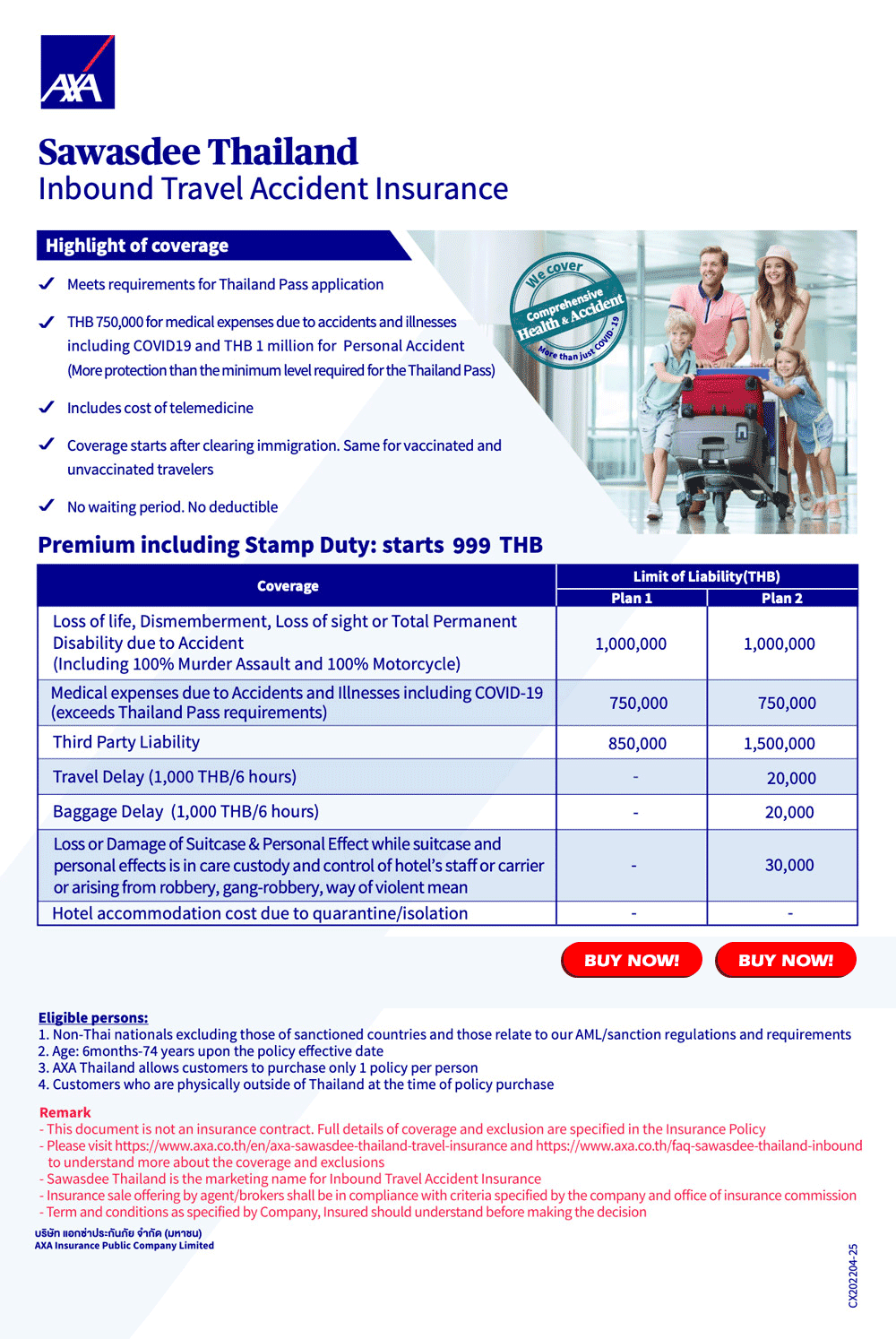
You may purchase COVID-19 travel insurance within a few minutes. Check the link below:

What is Travel Insurance and How Does it Work?

What exactly is travel insurance exactly?
Surprisingly, I hear that question quite a bit.
Travel insurance is emergency care and services provided when unexpected things happen while traveling. It typically covers you from the time you leave home to when you come back or reach your final destination.
Depending on the policy you buy, it could help you in the following example situations:
- When your luggage is lost or stolen at the Paris airport.
- When you fall off a bike and get a concussion while riding around Beijing on China’s bike share bicycles (perhaps one of falls apart on you?!).
- When you get a parasite after eating exotic food in Vietnam.
- When you need to cancel or cut your trip short because your grandmother passed away.
If you find yourself in a dangerous medical situation requiring surgery or evacuation, you can work with your provider to pay for the costs. For other incidents covered by your travel insurance policy, you pay up front and are reimbursed afterward.
To determine if you really need to purchase a policy, however, it is a good idea to understand what all of the best travel insurance policies covers.
